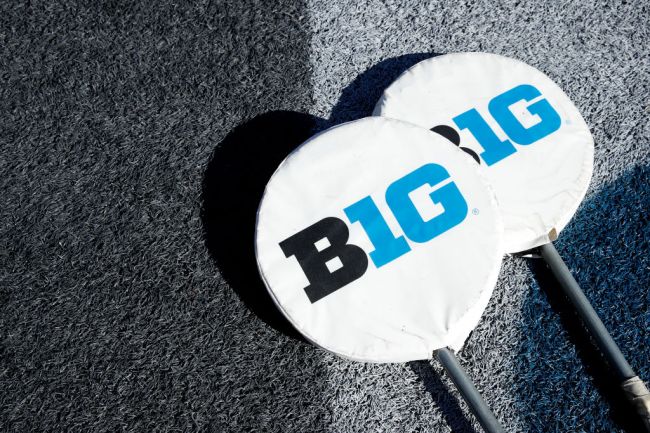
Getty Image
After weeks of speculation, rumors, and reports about reversing course on its decision to not play football this Fall, the Big Ten made it official on Wednesday morning announcing that the season would begin the weekend of October 23rd and 24th.
In August, when the conference originally announced that there wouldn’t be football this Fall, 11 of the 14 schools voted in favor of that decision with Ohio State, Iowa, and Nebraska being the three opposing schools. During the recent vote to reverse the decision, all 14 schools were on board and new COVID testing and medical protocols played a major role.
At the forefront of the conference’s multiple health and safety protocols and requirements is daily testing.
The Big Ten announced that it will require student-athletes, coaches, trainers, and all other individuals on the field for all practices and games to undergo daily antigen testing with the results having to be completed prior to each practice or game. Each university will have a Chief Infection Officer that will oversee all of the test results and data. A player that tests positive will have to sit out for at least 21 days.
For comparison to the three other Power 5 conferences playing football this Fall, the SEC is currently requiring a test twice per week, while both the ACC and Big 12 are requiring three tests per week.
Daily testing isn’t the only medical step the conference is taking, however. Any athlete that tests positive for the virus will be required to undergo comprehensive cardiac testing including labs and biomarkers, ECG, Echocardiogram, plus a Cardiac MRI. The athlete then has to get clearance from a cardiologist to return to competition.
While positive tests are inevitable at this point, the conference will use the data from each Chief Infection Officer to make decisions about canceling/postponing practices and games based on the number of positive tests.
If a team positivity rate spikes over 5% and a population positivity rate is above 7.5% then teams must stop regular practice and competition for at least seven days.
We’ve already seen some games postponed among teams that have already kicked off their seasons this Fall due to high positive test rates and numbers for each school around the country each week will be the most impactful factor of whether or not teams suit up or not.